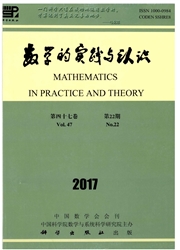

 中文摘要:
中文摘要:
长期以来,旅游厕所是我国旅游业最突出的薄弱环节.旅游厕所问题不仅关乎游客的切身利益,而且关乎目的地的长远发展.本研究以在趵突泉等4个旅游景区调查的575位游客为样本,利用IPA方法分析游客对旅游厕所30个评价指标的感知.结果表明:1)游客对反映旅游厕所"找得到"、"进得去"、"呆得下"的评价指标有最高的重要性感知.对旅游厕所的内饰、外观等方面的评价指标有最低的重要性感知;2)游客对旅游厕所在标识、免收费、开放时间等方面的表现有最高的绩效感知,对旅游厕所在辅助服务人性化、配套设备现代化等方面的表现满意度最低;3)如厕环境、服务残障人士等方面有高重要性但旅游厕所的实际表现不佳,是今后"厕所革命"的工作重心.研究结果有助于从游客需求的角度为我国目前正在推进的旅游厕所革命提供理论依据和实践指导.
 英文摘要:
英文摘要:
The tourism toilet has long been the weakest part in China's tourism industry. The issue is not only closely related to tourists' self-interests, but also the local areas' longterm development. With the sample of 575 tourists of four 5A level scenic spots such as Baotu Spring, the paper sets up 30 evaluation indices of tourism toilet by using the importance- performance analysis (IPA) method to analyze tourists. The result reveals that: First, tourists response the highest perceived importance on these evaluation indices like "being easy to find", "being free to go in" and "being willing to stay". The evaluation indices of the interior of the tourism toilet, appearance and so on are the most unimportant aspects. Second, tourists react the highest perceived performance on signs, free-payment and opening time, while getting the lowest satisfaction in humanized auxiliary service and modern complementary facilities. Third, the indices of toilet surroundings and services for the disabled have great importance but poor performance in actual situation, which would henceforth be the core to reform the tourism toilet. Based on the perspective of tourist demands, the results provide theoretical basis and practical guidance, and thus give an impetus to the development of the tourism toilet revolution advancing in China currently.
 同期刊论文项目
同期刊论文项目
 同项目期刊论文
同项目期刊论文
 期刊信息
期刊信息
